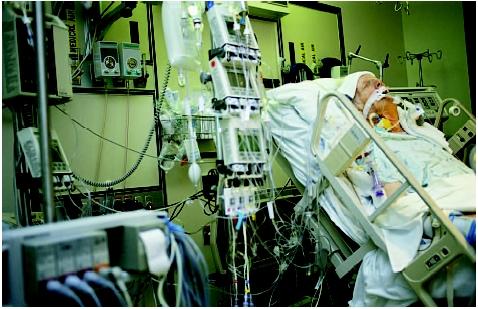 |
Back on Dec 31, I posted an item about Michigan preventing hospitals from using checklists that could prevent a number of deaths from infections. Astute reader Bob posted a comment today that pointed to a reply by the state that refutes the article.
While some expressed concern that OHRP has prohibited hospitals in Michigan and elsewhere from implementing a program intervention consisting of a checklist and other measures to prevent certain hospital-acquired infections, OHRP has taken no such action. On the contrary, if any hospital or intensive care unit decides to implement the use of checklists or other measures only for the reason that they believe those measures will improve the quality of care provided, they may do so without consideration of the requirements of the Department of Health and Human Services (HHS) regulations for the protection of human research subjects (45 CFR part 46).
We note that the op-ed also inaccurately characterized certain facts of the case involving the Michigan hospitals and how the regulations apply. In the case the op-ed refers to, the HHS regulations for the protection of human research subjects applied in an earlier time period when the use of a checklist was originally implemented as part of a multi-component program intervention being evaluated in a research study funded by HHS.
In other words, there is no reason for Michigan hospitals (and every other hospital around the country) to not implement these kinds of simple checklists given they can save our lives. If you go into a hospital, ask if they have one and if they enforce doctors and nurses following them.















Well, now I have to update the info I just sent out. thanks for the update though.
Yes. Its true. Too many skillfull doctors and nurses are too lazy to wash their hands==even in neonatal units where eye infections are rampant. Just go to the nursery and watch for a while. You’ll see some doc go from crib to crib. ain’t that cute?
If I only knew what only meant.
If I’m reading this correctly: If the checklist is implemented, and the rate of infection is not monitored or compared to earlier rates, fine. If, however, any such comparison or assessment of effectiveness was made, then it would be a violation.
Seems to me the effectiveness of the procedure has been shown and all any hospital using the checklist is doing is setting policy. Institutions that do not evaluate the impact (effectiveness, dollar cost, time required, alternatives, etc. ) of policy are badly managed.
That kind of policy making leads to:
Q: Why do we do this this way?
A: Because that is how we always have.
Not a good answer, especially when poor policy decisions lead to deaths. There might be a point if one wanted to implement the procedure on select wards and do an A/B comparison, but hospital-wide, it is just policy, not research.
Am I wrong?
>No reason … not to implement
That’s almost never true, and it is that type of thinking that makes things worse. Usually there is a cost to implementing things that never gets considered. People just see one benefit and say it’s obvious, your an idiot for saying no, etc.
That’s the thinking that brings you the Patriot Act and other monitoring, the Kyoto Treaty, and all sorts of ‘safety’ nanny-state rules.
#4: Quite true. The cost, in this case, is people dying needlessly.
The checklist is suspisously hard to find… Almost like it was being suppressed.
#3, Mental Midget MikeN,
You obviously have no idea of what you are talking about.
>No reason … not to implement
That’s almost never true, and it is that type of thinking that makes things worse.
When something has been investigated and the benefits have been demonstrated and the extra costs are minimal, there is no reason not to implement the change.
Usually there is a cost to implementing things that never gets considered.
So very true. When something is investigated the cost should be calculated too. So what is the cost of a nurse washing her hands?
Nurse Washing Hands
Soap = $0.05
Towel = $0.10
Nurse’s time at one minute to wash and dry assuming a labor rate* of $40 / hr = $0.67
Total = $0.82.
six nurse visits / day
Daily Total = $4.92
Cost of an infection
Antibiotics = $150.00
Physician time = $120 / day
Hospital bed = $900 / day ($1200+ / day in Intensive Care)
Total = $1270.00 on ward
* = Labor rate is the cost of salary + benefits + capital costs + incidentals.
So looking at the cost it would be about $1,265 per day more to treat a patient that acquires a hospital infection. A four day extended stay would cost over $5,000. That is assuming there is no surgery required, death, or lawsuit.
People just see one benefit and say it’s obvious, your an idiot for saying no, etc.
You are so right !!! Why waste that extra $0.05 worth of soap without having another $280,000 study?
/s>
People in responsible positions do not make rash judgments. They are paid to make informed decisions. You demonstrate why you are not in a responsible position. And I don’t mean the responsibility of having that big ring of janitor keys.